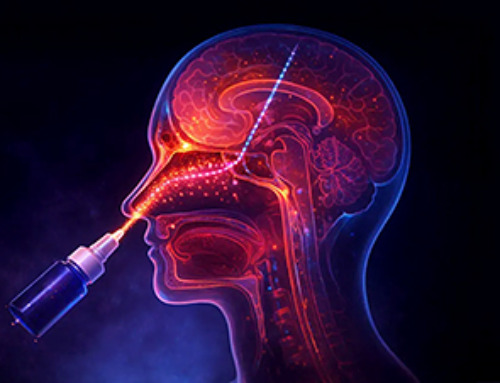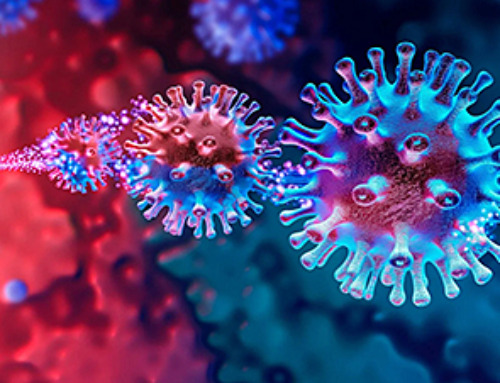On Monday, Pfizer and BioNTech announced in a press release that their vaccine candidate was more than 90 percent effective at preventing Covid-19 infection, based on initial results from their ongoing phase 3 clinical trial. The company expects to have applied for emergency use authorization with the Food and Drug Administration (FDA) by the end of November and could have as many as 50 million doses produces by the end of 2020.
This is tremendous news — and misinformation about it is already circulating on social media. According to research from VineSight, a slew of social Twitter accounts, including those of Donald Trump Jr. and Sen. Ted Cruz, are already questioning the timing of the results' release just days after the presidential election. By midday, tweets pushing that narrative had racked up more than 20,000 shares. The researchers estimate that Donald Trump Jr.'s tweet alone could have been seen by nearly 7 million people.
The dream of bringing a speedy end to the pandemic is a complicated one. Even when a vaccine does win initial FDA authorization in the United States, we should expect a lengthy period of "chaos and confusion," one expert recently told the New York Times. Much of that disarray could play out on social media.
From the possibility of multiple vaccines to regionally distinct distribution plans to still-evolving research, the process of vaccine implementation is already stoking anxiety and misinformation. Since the pandemic began, Facebook, Twitter, and YouTube have faced pressure to combat conspiracy theories about Covid-19 vaccines. When one or more vaccines are ultimately offered to the public, the companies will also need to continue to promote accurate information about ever-evolving public health precautions. And they must act sooner rather than later to grapple with the task of communicating and moderating this next period of the pandemic, according to Jennifer Reich, who has studied vaccine hesitance at the University of Colorado Denver.
"This is not going to be magic," Reich told Recode. "I think that the way the vaccine has been messaged has been like, 'Just wait till we have a vaccine and then we can all go back to life as normal.' That's probably not a realistic expectation."
Public health and social media experts told Recode that social media companies should expect anti-vaccination communities to use social media to capitalize on peoples' understandable concerns about a potential Covid-19 vaccine. At the same time, many will be confused and frustrated at the distribution of the vaccine, and some may be angry when they see others getting a vaccine before they do. That will come amid conspiracy theories and other misinformation that has already spread about potential Covid-19 vaccines.
Basically, it could be a very, very complicated mess.
Top Image Credit: Envato/Amanda Scott
Post by Amanda Scott, NA CEO. Follow her on twitter @tantriclens
Thanks to Heinz V. Hoenen. Follow him on twitter: @HeinzVHoenen
News
Molecular Manufacturing: The Future of Nanomedicine – New book from Frank Boehm
This book explores the revolutionary potential of atomically precise manufacturing technologies to transform global healthcare, as well as practically every other sector across society. This forward-thinking volume examines how envisaged Factory@Home systems might enable the cost-effective [...]
New Book! NanoMedical Brain/Cloud Interface – Explorations and Implications
New book from Frank Boehm, NanoappsMedical Inc Founder: This book explores the future hypothetical possibility that the cerebral cortex of the human brain might be seamlessly, safely, and securely connected with the Cloud via [...]
Global Health Care Equivalency in the Age of Nanotechnology, Nanomedicine and Artificial Intelligence
A new book by Frank Boehm, NanoappsMedical Inc. Founder. This groundbreaking volume explores the vision of a Global Health Care Equivalency (GHCE) system powered by artificial intelligence and quantum computing technologies, operating on secure [...]
Miller School Researchers Pioneer Nanovanilloid-Based Brain Cooling for Traumatic Injury
A multidisciplinary team at the University of Miami Miller School of Medicine has developed a breakthrough nanodrug platform that may prove beneficial for rapid, targeted therapeutic hypothermia after traumatic brain injury (TBI). Their work, published in ACS [...]
COVID-19 still claims more than 100,000 US lives each year
Centers for Disease Control and Prevention researchers report national estimates of 43.6 million COVID-19-associated illnesses and 101,300 deaths in the US during October 2022 to September 2023, plus 33.0 million illnesses and 100,800 deaths [...]
Nanomedicine in 2026: Experts Predict the Year Ahead
Progress in nanomedicine is almost as fast as the science is small. Over the last year, we've seen an abundance of headlines covering medical R&D at the nanoscale: polymer-coated nanoparticles targeting ovarian cancer, Albumin recruiting nanoparticles for [...]
Lipid nanoparticles could unlock access for millions of autoimmune patients
Capstan Therapeutics scientists demonstrate that lipid nanoparticles can engineer CAR T cells within the body without laboratory cell manufacturing and ex vivo expansion. The method using targeted lipid nanoparticles (tLNPs) is designed to deliver [...]
The Brain’s Strange Way of Computing Could Explain Consciousness
Consciousness may emerge not from code, but from the way living brains physically compute. Discussions about consciousness often stall between two deeply rooted viewpoints. One is computational functionalism, which holds that cognition can be [...]
First breathing ‘lung-on-chip’ developed using genetically identical cells
Researchers at the Francis Crick Institute and AlveoliX have developed the first human lung-on-chip model using stem cells taken from only one person. These chips simulate breathing motions and lung disease in an individual, [...]
Cell Membranes May Act Like Tiny Power Generators
Living cells may generate electricity through the natural motion of their membranes. These fast electrical signals could play a role in how cells communicate and sense their surroundings. Scientists have proposed a new theoretical [...]
This Viral RNA Structure Could Lead to a Universal Antiviral Drug
Researchers identify a shared RNA-protein interaction that could lead to broad-spectrum antiviral treatments for enteroviruses. A new study from the University of Maryland, Baltimore County (UMBC), published in Nature Communications, explains how enteroviruses begin reproducing [...]
New study suggests a way to rejuvenate the immune system
Stimulating the liver to produce some of the signals of the thymus can reverse age-related declines in T-cell populations and enhance response to vaccination. As people age, their immune system function declines. T cell [...]
Nerve Damage Can Disrupt Immunity Across the Entire Body
A single nerve injury can quietly reshape the immune system across the entire body. Preclinical research from McGill University suggests that nerve injuries may lead to long-lasting changes in the immune system, and these [...]
Fake Science Is Growing Faster Than Legitimate Research, New Study Warns
New research reveals organized networks linking paper mills, intermediaries, and compromised academic journals Organized scientific fraud is becoming increasingly common, ranging from fabricated research to the buying and selling of authorship and citations, according [...]
Scientists Unlock a New Way to Hear the Brain’s Hidden Language
Scientists can finally hear the brain’s quietest messages—unlocking the hidden code behind how neurons think, decide, and remember. Scientists have created a new protein that can capture the incoming chemical signals received by brain [...]
Does being infected or vaccinated first influence COVID-19 immunity?
A new study analyzing the immune response to COVID-19 in a Catalan cohort of health workers sheds light on an important question: does it matter whether a person was first infected or first vaccinated? [...]





















